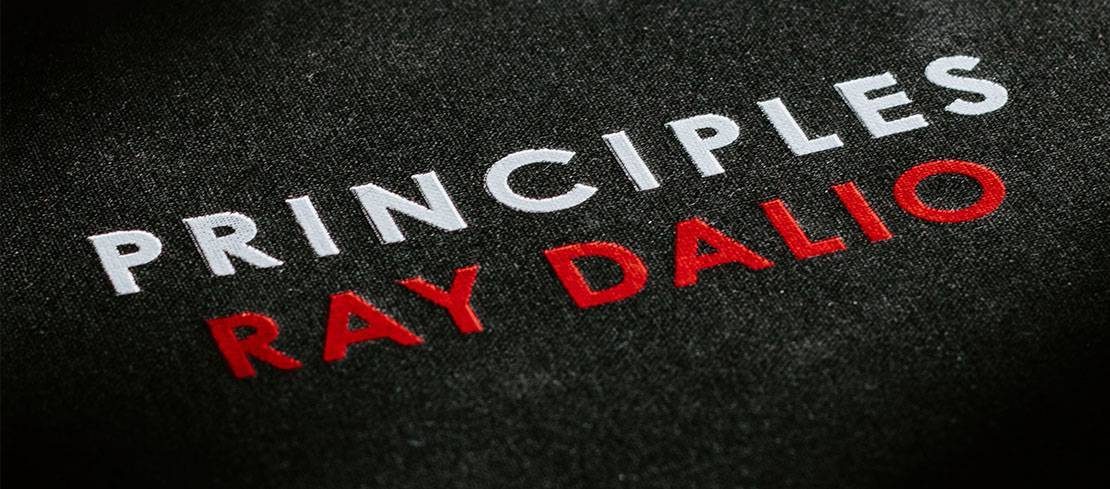Unsurprisingly, good decision-making is crucial for startup success. Working hard is important, but it wouldn’t get you where you want to be alone because good, informed decisions are what determine the direction of your journey and as a result – the growth trajectory of your project.
Theoretically, the optimal solution for each unique problem is different, which means you should consider all of your unique circumstances, values, and goals, and make a decision based on all of these factors.
Unfortunately, however, reality is immensely complex, and we are not blessed with omnipotent knowledge of our circumstances and the workings of the world. Moreover, gathering information is costly – you cannot afford to spend an infinite amount of time gathering information for each decision you take.
Making decisions without any information-gathering and analysis is a big mistake, but going into paralysis by analysis is equally problematic.
Because of this, most of our lives we are forced to make decisions on the basis of heuristics built on our previous experience – trial and error, which helps you create your own rules of thumb or principles for dealing with different kinds of situations.
Table of Contents:
- . Embrace Reality and Deal With It
- . Understand that People are Wired Very Differently
- . Trust in Radical Truth and Radical Transparency
- . Create a Culture in Which It Is Okay to Make Mistakes and Unacceptable Not to Learn From Them
- . Perceive and Don’t Tolerate Problems
- . Cultivate Meaningful Work and Meaningful Relationships
- . Summary
“Principles are ways of successfully dealing with reality to get what you want out of life.” – Ray Dalio
Fortunately, you don’t have to reinvent the wheel all by yourself and you can avoid a lot of unintended consequences and pain by learning from the experience of others.
The principles we discuss below are taken from the book “Principles” by Ray Dalio – one of the most successful investors and hedge fund managers in the world and a self-acclaimed professional mistake maker. We explain his principles in a startup context based on our professional experience to make sure they are actionable for founders.
1. Embrace Reality and Deal With It
If there is one thing you should internalize as a startup founder it is that your map of reality (your ideas, vision, understanding) does not and cannot perfectly represent reality.
You will be wrong a lot. If you cannot accept that and you don’t learn from it, you will have great difficulty growing an idea into a working company.
“Smart people are the ones who ask the most thoughtful questions, as opposed to thinking they have all the answers. Great questions are a much better indicator of future success than great answers.” – Ray Dalio
Instead of worrying about how you are being perceived by other people when you are wrong (or had wrong expectations), you should embrace such opportunities to improve your mental map of reality and change the direction of your project. Even though being wrong is painful, it is the best way to improve yourself and become better.
As a startup founder, you should be able to comfortably put on the hat of a scientist. Don’t invest a lot of money, time, and emotions into assumptions that you have not validated. Instead, be curious and humble and try to learn as much as possible about your niche in the world.
In practice, this means you should try to validate your unproven ideas and assumptions by testing them against reality. Talk to people who are in the position to give you valuable information because of their unique perspectives (Ray Dalio calls such people believable), and run empirical experiments to see not only what people say, but how they act when they are confronted with your ideas.
Once the results are in, don’t defensively try to protect your own views (even though this is a natural instinct, especially if you’ve shared your views with other people) – instead, you should be radically open-minded – another one of Ray Dalio’s principles.
It’s your job to be intellectually agile and to adapt your actions to reality.
2. Understand that People are Wired Very Differently
After dealing with reality as a whole, it’s your job to learn to deal effectively with people. It’s not a coincidence that we called it the most important skill for startup founders in one of our Forbes articles.
Trying to put yourself in the shoes of other people is critical in order to understand and successfully deal with the different stakeholders in your project.
“If there is any one secret of success, it lies in the ability to get the other person’s point of view and see things from that person’s angle as well as from your own.” – Dale Carnegie.
People are wired very differently, which means that it’s a mistake to assume that everyone will think and act the same way as you would in certain situations.
Understanding incentives, basic psychology, and accumulating experience in talking to and managing people will help you a great deal to become a much more effective communicator and manager.
3. Trust in Radical Truth and Radical Transparency
Ray Dalio heavily promotes radical truth and transparency as the basis on which to build good, productive professional relationships.
Radical truth as a principle allows you to put truth (reality), on the top of the value hierarchy even if it is socially uncomfortable. Your goal should be to build a culture in which radical truthfulness. At the end of the day, your whole team needs to be able to discover and embrace reality, not just you.
Naturally, this doesn’t mean that you need to totally ignore other people’s feelings and emotional needs (more on that below). They are just as much a part of reality as other factors in your environment. You should be skilled enough at dealing with people to be able to practice radical truth without damaging your professional relationships.
Without social skills, even if you have a better understanding of certain aspects of the world compared to other people, you risk damaging team morale. This way you risk losing your most important partners and employees, which needless to say wouldn’t help you succeed.
Radical transparency is a principle that works synergistically with radical truth. Transparency has two major effects.
First, it makes it easier for people to embrace reality simply because they have access to more truthful, untampered information.
Second, transparency (and we could add – vulnerability) builds trust, which is worth a great deal for any team.
4. Create a Culture in Which It Is Okay to Make Mistakes and Unacceptable Not to Learn From Them
“If you’re not failing, you’re not pushing your limits, and if you’re not pushing your limits, you’re not maximizing your potential” – Ray Dalio
Startups, by definition, work in the realm of the new and untested, which means getting everything right from the first try is simply impossible. You will make mistakes a lot, so you should have a sound system to deal with them.
First, this means learning to be comfortable with mistakes as a person and as a team. An environment in which making mistakes is OK is crucial for an innovative startup project. Innovation requires risk-taking, and risk-taking by definition leads to some bad outcomes.
That said, being overly comfortable with mistakes by itself isn’t a good thing. After all, you need to be able to put the learnings from your mistakes into practice, otherwise, you would lose the value of making the mistakes in the first place.
In his book, Ray Dalio gives as an example the story of an employee of Bridgewater who mistakenly didn’t make a planned trade. This led to the company losing hundreds of thousands of dollars. Yet, instead of firing the employee, which would have created a culture in which people would hide their mistakes out of fear of negative repercussions, Ray Dalio decided to use the opportunity to show that making a mistake is OK, but at the same time to create a system of error logging that prevents the repetition of said mistakes.
As an early-stage startup, you are racing against time – would you be able to make your business viable before you run out of the resources needed to support it?
In short, the speed at which you make mistakes and learn from them in the context of the resources at your disposal determines the chances of success of your project. “Fail fast” is a startup motto exactly because of this reason.
5. Perceive and Don’t Tolerate Problems
The survival and evolution of your startup depend on your ability not only to learn from your mistakes but also to deal with problems.
If you’re not worried, you need to worry. And if you’re worried, you don’t need to worry. – Ray Dalio
Ignorance of problems is no excuse – as a founder, it’s your job to identify them as much as it is to solve them. In that sense, worrying means that you are aware of the problems, which is a much better state of affairs than ignorance because it allows you to take measures.
Ray Dalio compares an organization to a machine. Unattended problems slow your machine down and can even lead to critical failures. Solved problems, on the other hand, are a great opportunity to improve the speed and efficiency of your machine.
In essence, intolerance of problems is the only way to ensure your machine runs smoothly, which needless to say is important to success.
6. Cultivate Meaningful Work and Meaningful Relationships
If you want to be able to attract top startup talent and motivate your startup team, then you should delve a bit deeper into the topic of what people actually derive from their work.
Making money is just one (albeit very important) aspect of the professional life of people. People work for many reasons, and if you want your team members to walk the extra mile, then you need to delve beyond simple explicit motivation.
As a startup founder, you have a great opportunity to capitalize on your position.
First, an early-stage startup team is by definition small, which means it’s much easier to cultivate a sense of belonging – a strong source of meaning and motivation.
Second, startups usually work on something innovative, which means the potential impact of your work on the world is significant – another source of meaning.
And last but not least, the high growth potential of startups coupled with company equity or employee stock options means the potential monetary rewards of the work of your team are higher (albeit riskier) than those in traditional corporate environments.
All of this allows you to enjoy a deep sense of meaning in your professional life.
Summary
Adopting the abovementioned principles will very likely have a positive impact on your professional life as proven by the unquestionable success of Dalio and his company Bridgewater.
That said, this is just the tip of the iceberg. In practice, your startup journey would be an endless quest to gather and update such principles based on your own wealth of experience.





